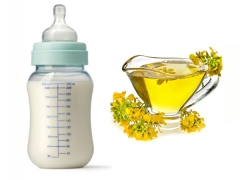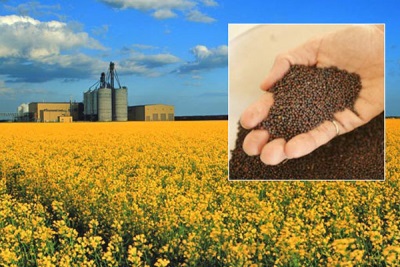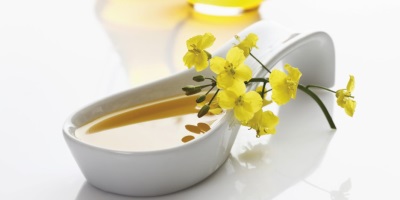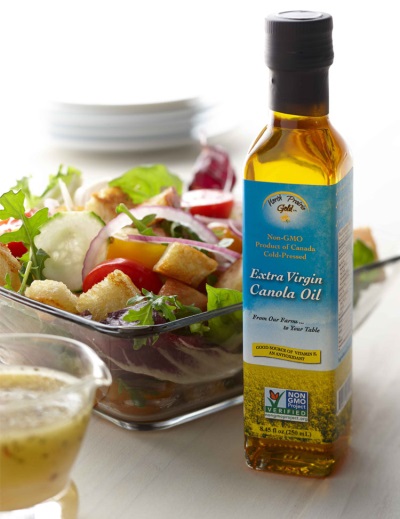Is rapeseed oil harmful in baby food?
The ingredients of baby food raise questions for many parents who want to feed their babies only with high-quality and safe products. Especially many concerns associated with vegetable oils, the harm of which is often discussed in the media. Among them - rapeseed oil. Is it good for children or can it harm children's bodies? Let's figure it out.
What are they doing?
Rapeseed oil is called, which is extracted from rapeseed. It is eaten more and more each year as it is a source of valuable fatty acids.
Special features
- Biochemical properties are similar to those of olive oil.
- It is little oxidized and has a long shelf life.
- It has yellow-brown color, characteristic taste and pleasant smell, resembling a nutty.
- It is added to pastries, salads, used for canning.
- In the process of industrial processing, free fatty acids, pigments, phospholipids and sulfur compounds are removed from it.
Beneficial features
- As part of a lot of monounsaturated fats.
- Includes omega fatty acids and vitamin E.
- The content of alpha-linolenic acid is one of the largest among all vegetable oils.
- Fatty acids from rapeseed oil are important for metabolism, cell regeneration, prevention of thrombus formation, and healthy skin.
Harm
Unrefined rapeseed oil contains erucic acid harmful to humans. It is not digested and accumulates in the tissues, causing a delay in the development of the reproductive system. Due to this substance, certain types of unrefined rapeseed oil are prohibited from being sold in some countries.
GMO?
Among the crops grown with the use of genetic engineering, there is rape. The benefits and harms of GMO products are actively discussed in the scientific community, but when it comes to nutrition for children, most parents tend to reinsure themselves and avoid risks, even if they are unlikely.
However, with regard to rape, it should be noted that rapeseed cultures cultivated by gene engineers have a lower content of erucic acid, which makes rapeseed oil safer.
In the composition of infant formula
Because of studies that have proven the negative impact of the use of rapeseed oil in children on the development and growth of children, for some time this product was prohibited from being added to baby food.
Later, the ban was lifted, provided that its content in the diet for children is no more than 31% of all fats in the mix. Recent studies by German scientists have confirmed that modern baby food formulas, including rapeseed oil, are safe for babies.

The main reason for adding to infant formula is the need to give the kids the essential fatty acids they need. Breastfed babies have the opportunity to get such acids from their mother's milk, and in order to maximize the composition of the mixture to the composition of breast milk, manufacturers add vegetable oils to the diet, among which rapeseed is also found.
Application and addition to food
Rapeseed oil can also be used as an ordinary vegetable oil, but there is another danger here. Refining and other processing of rapeseed oil take place at high temperatures and with the use of chemicals, some of which are hazardous. To exclude adverse effects, adults are advised to choose Extra Virgin rapeseed oil for consumption, that is, obtained by cold pressing.
Also, when purchasing a cooking product, pay attention to the amount of erucic acid in the selected product (it is indicated on the package and should be up to 5%).
It is not recommended to fry on it, since high temperatures make this product toxic and carcinogenic. It is best to add rapeseed oil to salads and ready meals. In vegetable purees for children, it can be added in the amount of 5 ml per 150-200 gr. vegetables.
Diet without rapeseed oil
If you want to avoid the use of rapeseed oil and not to give baby food, which contains such an ingredient, to your children, carefully read the labels and choose products that do not contain it.
Mixes
Most infant formulas include rapeseed oil. This component is not in mixtures of Nanny and Similac. Fatty acids in these mixtures are represented by coconut and soybean oil fats.












